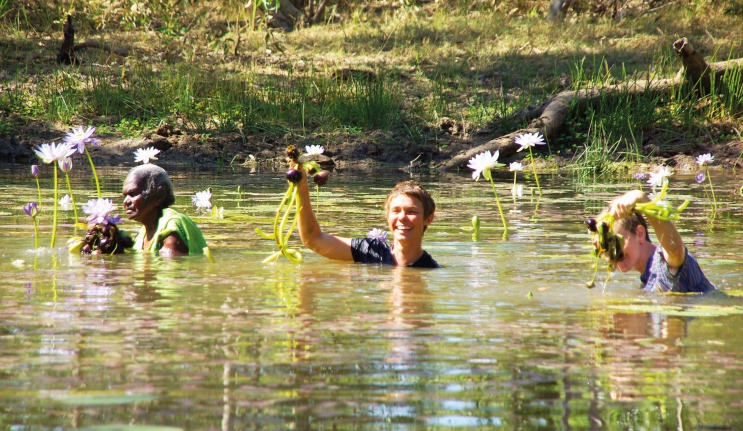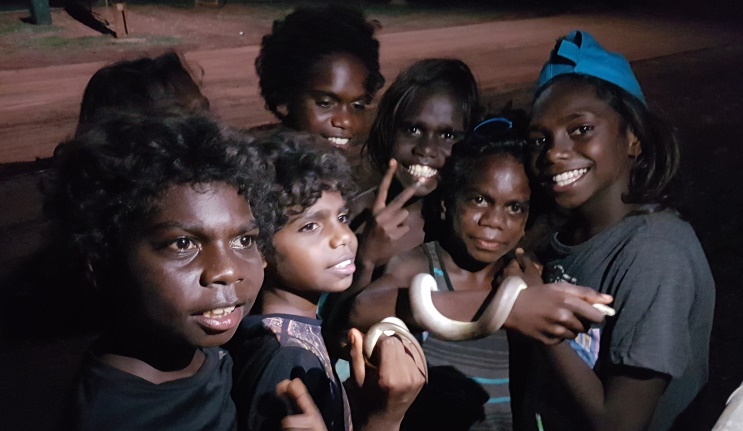
RESEARCH NEWS
A shared wisdom
The Ngukurr Wi Stadi Bla Kantri (meaning ‘we study the country’ in Kriol) research team is a unique collaboration between Ens, Ngandi Elder Cherry Wulumirr Daniels, the Yugul Mangi rangers, Ngukurr School and community members from the remote Aboriginal community of Ngukurr.
The team is discovering new species; finding new populations of threatened species; preserving culturally significant wetlands; bringing people back to country; and maintaining traditional, endangered languages. Ens works closely with elders, rangers and young people to “meaningfully combine local Aboriginal and Western science while raising awareness of environmental threats in the remote south-eastern Arnhem Land region.”
“This initiative is increasing Western understanding of regional biodiversity and helping find common ground with local people about significant plants and ecological communities. From there we develop projects and monitoring tools.”
TRANSFER OF KNOWLEDGE
Children from Ngukurr School are involved in the project through classes, holidays camps, field research and sample collection. They document information via technology and use traps to find small mammals, reptiles and frogs out in the field.
But not only school children are involved. The Ngukurr community is also helping save a newly discovered population of Leichhardt’s grasshopper. Found during a biodiversity survey that has since become part of a field guide to the local flora and fauna, this bright orange and blue grasshopper is culturally significant to the Ngandi people, but it had not been seen in many, many years.
The near-threatened species eats a single species of mint (Pityrodia) that is at risk from current fire regimes, but Ens says that “rangers are now looking more closely at how they burn the remote area where these grasshoppers live.”
It is exactly this type of hands-on scientific research that helps those involved connect to country, which increases investment in the management and protection of the environment and helps transfer knowledge between generations – much of which has been lost.
RECLAIMING COUNTRY
“A lot of people have been living off country. They’ve lost both cultural knowledge and language; they don’t know how to use available bush tucker or medicinal plants,” says Ens.
She gives the example of cheeky yams (Dioscorea bulbifera), which need to be cooked, and then leached of any residual toxins by placing them in running water for five days before being eaten. Not only has much of this knowledge been lost, but this culturally significant plant is under threat from wild pigs.
Yet Ens is hopeful. “If people can start to think about how a significant plant is being impacted, they can also start to think about the wider threats to country posed by the pigs, and they may then welcome feral animal control measures.”
It is all interconnected – and one more way the Ngukurr Wi Stadi Bla Kantri project is having a positive, tangible effect on both people and country.
